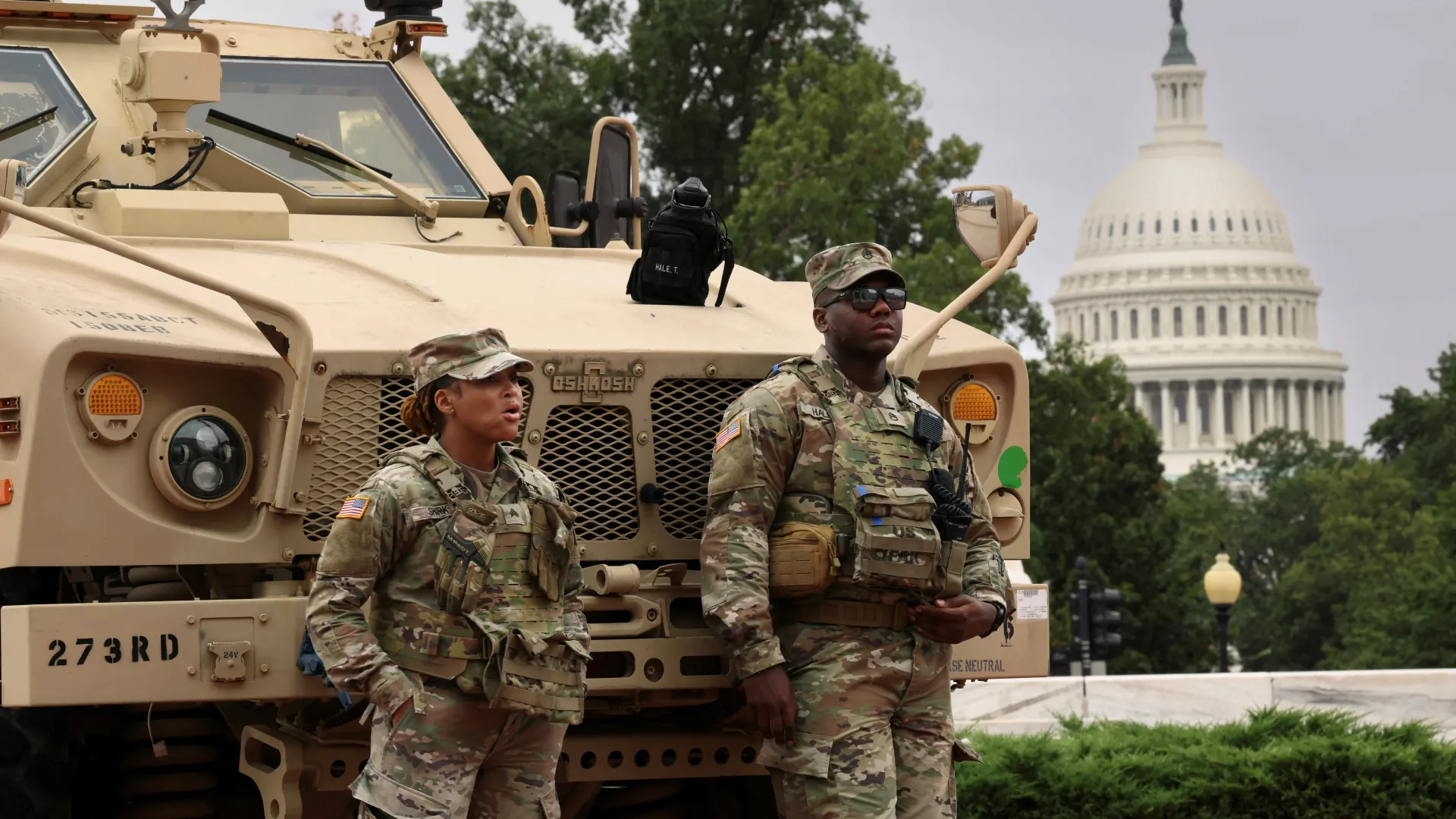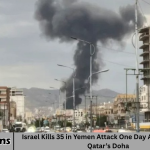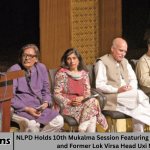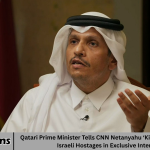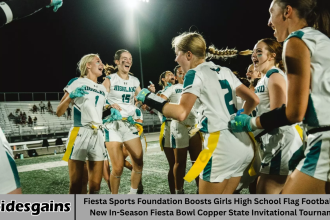The role of the National Guard in American domestic affairs has always been a subject of intense debate. When former President Donald Trump deployed the Guard in Washington, D.C., during periods of social unrest, their presence became both a symbol of authority and a source of controversy. Among the many headlines surrounding that deployment, one seemingly small incident stood out: a National Guard member was cited for a traffic violation while on duty in the nation’s capital.
- The Background: Why the National Guard Was in Washington, D.C.
- The Incident: A Traffic Violation That Sparked Debate
- Civilian Law vs. Military Discipline
- The Symbolism of Small Incidents
- Public Perception and Media Coverage
- Historical Context: Military Presence in Civil Affairs
- Legal and Political Implications
- The Human Element: Stress, Fatigue, and Mistakes
- Lessons Learned
- Broader Reflections: Militarization vs. Civil Authority
- FAQs
- Why was the National Guard deployed in Washington, D.C.?
- What kind of traffic violation occurred?
- Was the Guard member punished beyond the citation?
- Does military deployment exempt soldiers from civilian laws?
- Why was this incident significant?
- How did the public react?
- What lessons were learned from this case?
- Conclusion
At first glance, this may appear to be an ordinary event—after all, traffic citations happen every day. Yet in the context of the Guard’s mission, the political climate, and the optics of military involvement in civilian spaces, such an occurrence carries deeper implications. It raises questions about accountability, discipline, and the blurred lines between military duties and civilian law enforcement activities.
This article explores the incident in detail, provides historical and political context, and discusses what it tells us about the complex relationship between the military and civil society.
The Background: Why the National Guard Was in Washington, D.C.
In the summer of 2020 and the months that followed, Washington, D.C., became the epicenter of national debates over policing, protest rights, and political authority. Former President Trump authorized the deployment of thousands of National Guard members to bolster local law enforcement.
The move was triggered by large-scale protests following the killing of George Floyd, as well as concerns over security around federal buildings and monuments. In Trump’s own words, this was necessary to “restore law and order” to the nation’s capital.
The Guard’s deployment was not limited to passive observation. Armed patrols, crowd control, and vehicle convoys became part of the daily landscape. In this tense environment, even routine mistakes by service members attracted outsized attention.
The Incident: A Traffic Violation That Sparked Debate
According to official reports, one Guard member assigned to vehicle operations was cited for a traffic violation while maneuvering through Washington, D.C. The details of the citation indicated speeding in a restricted area near the Capitol, where strict traffic control measures were in place.
While no pedestrians or vehicles were harmed, the incident was enough to generate discussion among both local authorities and the press. The citation symbolized how even disciplined forces are not immune to everyday mistakes, especially when operating in civilian spaces.
Witnesses noted that the Guard vehicle was part of a convoy transporting supplies, but a misjudgment of speed limits in a sensitive area led to the infraction. Local police followed protocol, issuing a citation rather than deferring to military command.
Civilian Law vs. Military Discipline
One of the most significant aspects of this incident is how it highlights the dual systems of accountability that apply to members of the armed forces.
On one hand, National Guard members remain subject to the Uniform Code of Military Justice (UCMJ). On the other, when they operate on American soil outside of active combat zones, they must also comply with civilian laws.
In this case, the Guard member’s traffic violation was handled by civilian police rather than military commanders. The decision to issue a citation underscored the principle that deployment in support of civil authority does not grant immunity from civilian legal systems.
Military law experts argue that such enforcement is crucial for maintaining public trust. “If service members were seen as being above the law while enforcing order, it would create resentment and undermine legitimacy,” one former Judge Advocate General (JAG) officer explained.
The Symbolism of Small Incidents
The significance of this traffic violation lies less in the act itself and more in the symbolism attached to it. At a time when critics accused the Trump administration of militarizing domestic policy, every action of the Guard was scrutinized.
For supporters of Trump’s approach, the citation demonstrated fairness—proving that National Guard troops were held to the same standards as ordinary citizens. For critics, it highlighted the risks of placing military personnel in civilian environments where they might be prone to errors that escalate tensions.
Political commentators suggested that the incident, though minor, represented a broader truth: blending military power with civilian policing often creates friction at unexpected levels.
Public Perception and Media Coverage
Local Washington, D.C. outlets covered the traffic violation as part of a broader narrative about the Guard’s presence in the city. Headlines emphasized both the ordinary nature of the offense and the extraordinary circumstances of the deployment.
Public opinion was divided. Some residents expressed frustration that military vehicles were clogging streets already under heavy restrictions. Others saw the Guard’s presence, even with occasional mistakes, as a reassurance of security.
Polls from that period reflected the division. According to a Pew Research Center survey, 55% of Americans believed the use of the Guard to quell protests was justified, while 40% considered it excessive. Incidents like the traffic citation became talking points in these debates, illustrating how small details can shape large conversations.
Historical Context: Military Presence in Civil Affairs
This was not the first time the National Guard’s conduct in domestic operations attracted attention.
1968 Washington Riots: Guard members deployed after the assassination of Martin Luther King Jr. faced both praise for restoring order and criticism for their handling of civilians.
Kent State, 1970: The shooting of student protesters by Guard members remains one of the darkest moments in U.S. civil-military relations.
Post-9/11 Security: The Guard was again deployed in Washington, D.C., where their presence around monuments raised similar questions about the balance between security and civil liberty.
The traffic violation in 2020 may pale in comparison to such historic incidents, but it belongs to the same continuum of debates: what happens when soldiers step into civilian life with military authority?
Legal and Political Implications
From a legal standpoint, the Guard member’s traffic citation did not carry extraordinary consequences. The fine was paid, and no further disciplinary action was reported beyond a possible review by commanding officers.
Politically, however, the story became a microcosm of the larger debate over Trump’s use of military force. Lawmakers who opposed the deployment pointed to such incidents as evidence that the Guard was being placed in situations for which they were not trained. Proponents countered that the swift and fair handling of the citation showed accountability in action.
One D.C. council member commented: “The fact that a Guardsman was ticketed just like any other driver sends a message that no one is above the law. But it also begs the question—why were they here in the first place, creating conditions where such conflicts could occur?”
The Human Element: Stress, Fatigue, and Mistakes
Guard members deployed in Washington during that time faced long hours, constant public scrutiny, and a tense atmosphere of protests and counterprotests. Fatigue and stress likely contributed to errors such as traffic violations.
Military psychologists note that soldiers operating in civilian environments face unique challenges. Unlike overseas combat zones, where rules are clearer, domestic deployments require a delicate balance of firmness and restraint. The mental toll of this balancing act often leads to small but noticeable mistakes.
Thus, the incident also sheds light on the human side of military duty—reminding the public that Guardsmen are not machines, but individuals navigating immense pressure.
Lessons Learned
The traffic violation incident prompted discussions within military and civilian leadership about better coordination. Key takeaways included:
Clearer Rules of Engagement: Ensuring service members understand not only their military orders but also local civilian laws.
Joint Training Exercises: Preparing Guard units for domestic operations with greater emphasis on traffic safety, de-escalation, and community interaction.
Transparency: Publicly addressing even minor infractions to maintain trust in military-civil relations.
Experts argue that such lessons are critical for future deployments, whether related to protests, natural disasters, or security events.
Broader Reflections: Militarization vs. Civil Authority
Ultimately, the story of a Guardsman receiving a traffic ticket during Trump’s Washington deployment serves as a lens through which to examine broader issues.
It illustrates the fine line between using military resources for public safety and eroding the traditional separation of military and civilian life. It also underscores the importance of accountability, no matter how small the infraction.
In democratic societies, even minor incidents can fuel important discussions about power, legitimacy, and governance.
FAQs
Why was the National Guard deployed in Washington, D.C.?
The Guard was deployed under Trump’s orders to support law enforcement during protests and to maintain security around federal buildings.
What kind of traffic violation occurred?
The Guard member was cited for speeding in a restricted area near sensitive government buildings.
Was the Guard member punished beyond the citation?
The citation was handled by local police with a fine. No further public disciplinary action was reported, though commanders may have reviewed the case internally.
Does military deployment exempt soldiers from civilian laws?
No. When operating in the U.S., Guard members must follow both military codes and local civilian laws.
Why was this incident significant?
Though minor, it symbolized the tension between military presence and civilian governance, fueling debate about the appropriateness of Trump’s decision to deploy the Guard.
How did the public react?
Opinions were split—some saw it as accountability in action, while others viewed it as evidence of the risks of militarizing civilian areas.
What lessons were learned from this case?
It highlighted the need for better training, clearer rules, and transparency when the military is deployed for domestic operations.
Conclusion
The citation of a National Guard member for a traffic violation in Washington, D.C., during Trump’s deployment may seem minor, but its significance is undeniable. It highlights the dual obligations of service members—to military command and civilian law—and reflects the challenges of blending military presence into everyday civic life.
While the infraction itself carried little consequence beyond a fine, the debates it sparked revealed deep divisions in American society over security, authority, and the role of the military at home.
In the end, the story serves as a reminder that in times of political turmoil, even the smallest details—like a traffic ticket—can hold powerful symbolic meaning.

